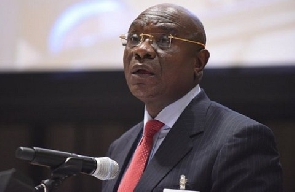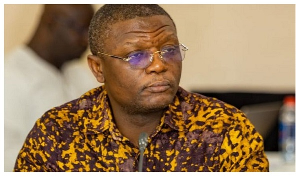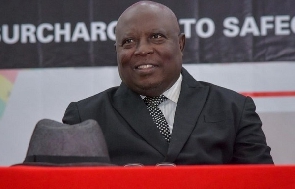University of Cape Coast—Cape Coast
25TH June, 2012
On June 26th, the United Nations and governments around the world will mark, once again, INTERNATIONAL DRUG DAY. That day is designated by the UN for reflection and action on drugs. The scale, reach and impact of drugs are truly frightening.
According to the 2011 Global Drug Report, worldwide, about 250 million people use drugs while about 25 million people have problems, including addiction. Many experts believe that these numbers underestimate the impact of drugs. It does not count the children born to drug addicted mothers, the millions infected with Diseases like Hepatitis and HIV, those involved in Motor Vehicle Accidents and Domestic Violence and finally its impact on crime.
Due to its long and poorly protected coastline, weak governments, poverty and strategic location between South America and Europe, West Africa will be the most vulnerable region to the drug trade in the future.
As former UN Secretary General Kofi Annan wrote in Britain’s “THE OBSERVER” on January 29th 2012, “The smuggling of illegal drugs through West Africa, notably cocaine and heroin, has increased dramatically. A decade ago, the total seizures of cocaine in the region were less than 100 kilos. By 2009, this had increased to nearly 6,500 kilos. The World Bank estimates that cocaine with a street value of 6.8 billion USD trafficked through the region the previous year.”
Indeed, there is hardly a West African state that has not experienced major incidents related to drugs ; calling into question the integrity of its state institutions. From Guinea Bissau which has been virtually inundated with drugs to Ghana’s M.V. Benjamin case and cocaine for baking soda swap, to the Gabrilla Kamara case involving Guinea and Sierra Leone to the Sahel countries of Mali and Mauritania that appear to be increasingly under the sway of criminal gangs—West Africa is taking it on the chin. To make the picture more frightening, there appears to be a growing nexus between drugs and terrorism as well as between drugs and politics.
Writing presciently of Mali in Europaworld.com, Dr. Kwesi Aning of the Kofi Annan International Peace Keeping and Training Centre wrote “The implementation of the Algiers Accord has reached its final stages. However, uncertainty surrounds the issue of whether the rebel group, which has not yet disarmed, will return to its violent ways.” Well, the rebel group did return to its violent ways and Mali is facing partition. In Nigeria, there increasing speculation as to whether the Nigerian organization, “Boko Haram” which has just been labeled a terrorist organization by the United States may be financed by drugs.
As if these problems are not enough, there evidence that in most West African countries, prescription drugs are not well secured. As Dr. Aning wrote in AFRICA SOUTH OF THE SAHARA YEARBOOK, “Parallel markets exist in many African countries, where prescription drugs are sold outside the control of the health authorities.”
To be fair, given their limited resources, African governments have been doing their best to stem the rising tide of the drug menace, often with help from the West. There are in virtually every African country , seizures being reported all the time. There have been eye-popping seizures in Nigeria, Guinea-Bissau and Liberia, to mention just a few. In addition there have been initiatives like Operation Westbridge, the agreement for collaboration between Ghanaian and British Security forces to fight the flow of narcotics originating from Ghana. Unfortunately, despite these efforts, the tide of drugs, as Kofi Annan and others have indicated, keeps rising.
It is clear that if the challenges posed by drugs alone or linked to terrorism and politics are not addressed proactively, they will be addressed belatedly with catastrophic consequences.
As the problem becomes more acute in the Western nations, particularly Europe, they will seek to do on the shores of West Africa and maybe in the Andean nations what they cannot do on their own streets, fight the drugs menace without regard to the rights of our nations or individuals. This will involve the invasion of nations or raids by special forces to pick up politicians , security agents and criminals perceived to be involved in the drug trade. Indeed such military initiatives in clear violation of soverienty have already been seen in Panama in connection with Noriega and is on full display in Pakistan and Yemen relating to terrorism.
It is the alarm for the drug menace and this kind of war that my book, “THE DRUG INVASION OF WEST AFRICA” sounds. As the fictional British Prime Minister, John Jenkins, says ominously in support of his quest for a Global War on Drugs that is ultimately supported by the US President, “National sovereignty must yield to the safety of our global community. Increasingly, there are problems that defy national solutions and require international answers.”
It is imperative that the drug problem and the challenges it poses to Africa are confronted sooner rather than later with Africa as a key player. If we delay, Global powers will reach over the shoulders of African leaders to address this problem in a manner that undermines our sovereignty and our dignity. As the fictional President of Nigeria demands in “THE DRUG INVASION OF WEST AFRICA”, “If the UN has to come to Africa and deal with this problem, then what is the AU there for?”
To address the challenges posed by drugs, we need to do the following.
First, we must strengthen our law-enforcement institutions. When Policemen who are fighting drug cartels have not been paid for months, they are easy prey for bribery.
Second, we must increase collaboration amongst nations with regard to the exchange of intelligence information.
Third, we must strengthen our laws on money laundering. Weak money-laundering laws encourage criminal enterprises and attract illegal monies from elsewhere unto our shores.
Fourth, we must introduce public financing into our politics coupled with improved transparency and accountability. If we allow drug money to inundate our politics, our democracies and societies will collapse.
Fifth, as a society, we must check the rise of mindless materialism and the worship of money regardless of its source. We must celebrate genuine success, even if it is not accompanied by riches.
Sixth, with the help of the West, we must raise the incomes of our populations through the creation of well-paying jobs and increased access to Western markets.
Let us move forward—together.
Arthur Kobina Kennedy, MD
Opinions of Tuesday, 26 June 2012
Columnist: Kennedy, Arthur Kobina


















